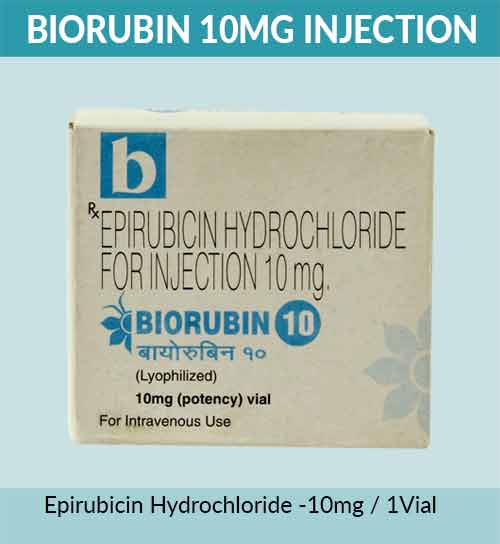Epirubicin
Epirubicin is a medication used in the treatment of various types of cancer, including breast cancer, ovarian cancer, and bladder cancer. It belongs to a class of drugs known as anthracyclines.
Epirubicin works by interfering with the DNA replication process in cancer cells. It binds to the DNA molecule, preventing its normal function and inhibiting the synthesis of RNA and proteins necessary for cell growth and division. This ultimately leads to the death of the cancer cells.
The medication is typically administered intravenously. The dosage and treatment duration depend on the specific type and stage of cancer being treated, as well as the individual’s overall health.
Common side effects of epirubicin may include nausea, vomiting, hair loss, decreased blood cell counts, and increased susceptibility to infections. More serious side effects, such as heart problems or damage to the bone marrow, can occur but are less common. Regular monitoring of blood cell counts and cardiac function may be recommended during treatment.
Epirubicin should only be used under the guidance and prescription of a qualified healthcare professional experienced in the treatment of cancer. It may interact with other medications, so it is important to inform the healthcare provider about all medications being taken, including over-the-counter drugs and supplements.
In summary, epirubicin is a medication used in the treatment of various types of cancer. It interferes with DNA replication in cancer cells to inhibit their growth and division. Regular monitoring and adherence to healthcare provider instructions are important during epirubicin treatment.
Note – The brand names and product descriptions used on this site are for informational purposes only and are the property of their respective owners.





